For many people, artificial intelligence (AI) holds the promise of better, easier and longer lives. Perhaps even more.
The unfolding AI revolution, complete with machine learning, deep learning and cognitive computing (i.e., machines capable of learning from their own mistakes, or from patterns discovered in large databases), and the smart technologies posed to permeate our daily lives, such as autonomous vehicles and the Internet of Things (with its capability to combine devices into one intelligent organism), promises to change our world profoundly. Also, and importantly, the computational power of computers has grown exponentially, supported by complex algorithms and neural networks that enables machines to understand and respond to language, conversing with humans and automating peer-to-peer transactions, and other business processes.
All this sounds impressive, heralding a qualitative change in our daily lives. Sophisticated technologies not only gradually transform business models and learning tools, but also penetrate our daily lives. With smartphones in hand and virtual “versions” of ourselves on the Internet, we, as humans, are integrating with the growing digital, virtual space. Can this ongoing makeover affect our biological, spiritual and intellectual makeup? Will AI continue to become ever more autonomous. And if it does, what will this mean for our collective consciousness as a species? Are we on the verge of an existential breakthrough? Some scientists believe so, claiming that the change is evolutionary and that the key driver of human evolution today is modern technology.
A cosmic brain-to-brain connection
I can still remember the question a friend asked me in my first year of high school: How do you think the ape that became the first man felt?
The question amused me, but it was, at bottom, philosophical. I recalled it recently while reading the article, “Humanity is about to transition to ‘evolution by intelligent direction.’” Its author argues that “we are rapidly heading towards the next evolutionary step into what I call ‘meta-intelligence,’ a future in which we are all highly connected, brain to brain. It will become possible thanks to the sharing of thoughts, knowledge and activities, and the technological basis of this process will be ‘THE CLOUD’.”
Having announced the transformation of humanity, and its transition to a different level of existence, the author lists the drivers of this process:
- The wiring of the planet.
- A brain-computer interface.
- The emergence of AI.
The wiring: Everything connected, always
The wiring part of the process is largely in place. The whole of humanity is becoming connected to the global web and, within years, every inhabitant of the planet will enjoy full access. This will place new communications options and unlimited digital data, products, services and content at our fingertips. Never have humans we faced a change so widespread, and so democratic. Thanks to the wiring of the planet, each of us today can (or soon will be able to) access the entire global, intellectual and cultural achievements of humanity. Granted, high quality content may only be accessible at a cost, and therefore available only to some of us. In general, though, all of mankind will benefit.
Within a mere two decades, the web has driven the rise of a global economy with its new business models, tools and communication platforms. The freely flow of data sets of cosmic proportions (big data) that the web has enabled is gradually becoming a solid, unbreakable, technological foundation for the global economy, offering business or social products of all kinds to any interested customers, anywhere. The internet has helped tear down barriers to the growth of civilization. Like the web, AI is a game-changer.
The brain: This is you, in the cloud
The author of “Evolution by intelligent direction” also noted the emergence of a direct link between the human brain and the computer. Science fiction fans are very familiar with this idea, pioneered by William Gibson in his novel “Neuromancer”.
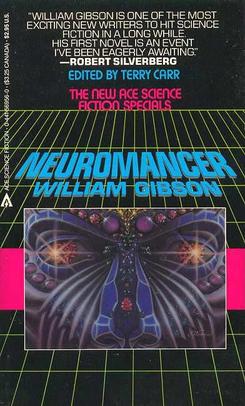
Neuromancer by William Gibson – First eddition as of 1984
What for so long has existed only in the imaginations of artists and futurologists, is now becoming reality. Until now, the way we interacted with computers has largely relied on our hands. Soon, however, an interface that directly transmits impulses (thoughts, commands) from the human brain to the computer could deliver significant efficiency gains, time savings, and even a sense of closeness with the content we create. Reports on research laboratories developing broadband connections between digital machines and the cerebral cortex no longer blow our minds. One example of such efforts is the Neuralink project by Elon Musk, who has invested millions into better and more efficient interactions between the human brain and the machine.
Or take the American company Kernel, which does research into how the human brain works. Today, Kernel scientists are designing software to help alleviate neurological conditions and disorders such as epilepsy and Alzheimer’s disease. Tomorrow, Kernel’s goal is to implant a chip in the human brain to link people to a cloud, expanding our memory and enhancing our cognitive functions beyond imagination. We could connect with other human brains just as we communicate with other people’s computers or telephones. In this way, we could explore all human thought without external devices.
As fantastic as this may sound, Johnson argues that the ability to implant chips that connect with other chips in other brains is no longer in question; an affirmative answer has already been given. The only question that remains is, when will it happen? And when it does, are we going to witness the birth of an unprecedented cosmic meta-intelligence? The vision is very exciting, but its consequences are hard to predict. I believe that providing every individual with access to all human knowledge, retrievable almost instantly, would inevitably lead to the birth of meta-intelligence.
AI: Catalyst for evolution
AI is essentially an opportunity to fast-forward evolution and, perhaps, merge with our machines. For the time being, the merger is about creating a better connection between the user and a computer (with its rapidly growing computational power) that engages all five human senses. IBM’s Watson already sifts through billions of data sets per minute to improve health care, performing jobs that would be impossible without algorithms based on neural networks (machine learning) that could never be done by medical and scientific personnel relying on classical computers.
Watson is proof of how the cognitive abilities of our species can be enhanced to improve our psychophysical performance. In a study on the future of AI, the McKinsey Global Institute outlines the possible evolution of medical diagnostics over the coming years.
Andrew Ng, once key specialist at the Chinese technology company Baidu, has said, “Just as electricity transformed almost everything 100 years ago, today I actually have a hard time thinking of an industry that I don’t think AI will transform in the next several years.”
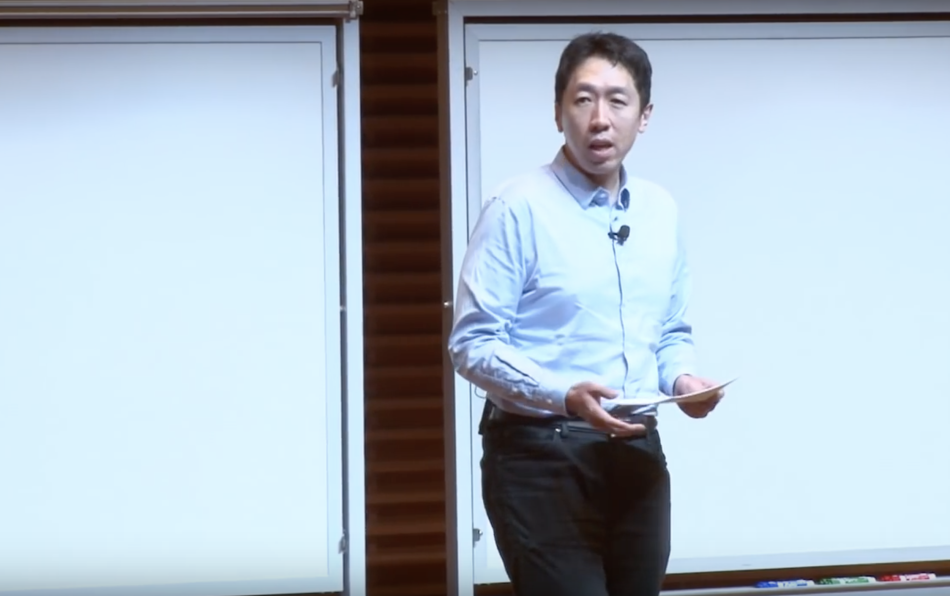
Andrew Ng while giving this talk. Link
Let’s get down to earth
Supported by continually-developed deep learning models funded by companies such as Google, Facebook, IBM, Samsung and Alibaba, AI will grow exponentially. The total meta-intelligence (artificial and human combined) can be the most critical success factor for companies and nations. Therefore, along with a new arms race in AI, we will soon see a race to boost the combined human intelligence of entire nations.
Critics of the idea of meta-intelligence and, more broadly, of merging humans with machines, abound. Skeptics in the medical world argue we don’t fully understand how the human brain works. We only have a faint idea of where the brain stores (if, in fact, it does) the information it later retrieves. We are befuddled by how the brain performs its calculations. So far, chips to improve memory have only been implanted in rat brains. Therefore, linking the brain to a cloud for common access to the intellectual achievements of all, well… it will take a while. Personally, however, considering the speed at which technology is driving evolution, I would not bet against the possibility of combining advanced technology with the human body.
I think, being homo sapiens, we will do what we have always done: move fast, break things, fix them.
. . .
Works cited
Peter H. Diamandis, Humanity is about to transition to “Evolution by Intelligent Direction”, Futurism.com, link, 2017.
Willam Gibson, Neuromancer, 1984.
Chantal Da Silva, Elon Musk startup ‘to spend £100m’ linking human brains to computers, Independent, link, 2017.
Jacques Bughin, Eric Hazan, Sree Ramaswamy, Tera Allas, Peter Dahlström, Nicolaus Henke, Monica Trench, Artificial Intelligence The next Digital Frontier, McKinsey Global Institute, link, 2017.
Andrew Ng while giving this talk, Youtube, link, 2017.
Shana Lynch, Andrew Ng: Why AI Is the New Electricity, Insights by Stanford Business, link, 2017.
. . .
Related articles
– The “sharing economy” was envisioned nearly 100 years ago
– Who will gain and who will lose in digital revolution?
– When will we cease be biological people
– Artificial intelligence is a new electricity
– Only God can count that fast – the world of quantum computing
– Machine Learning. Computers coming of age
– Big Data: New player in sport

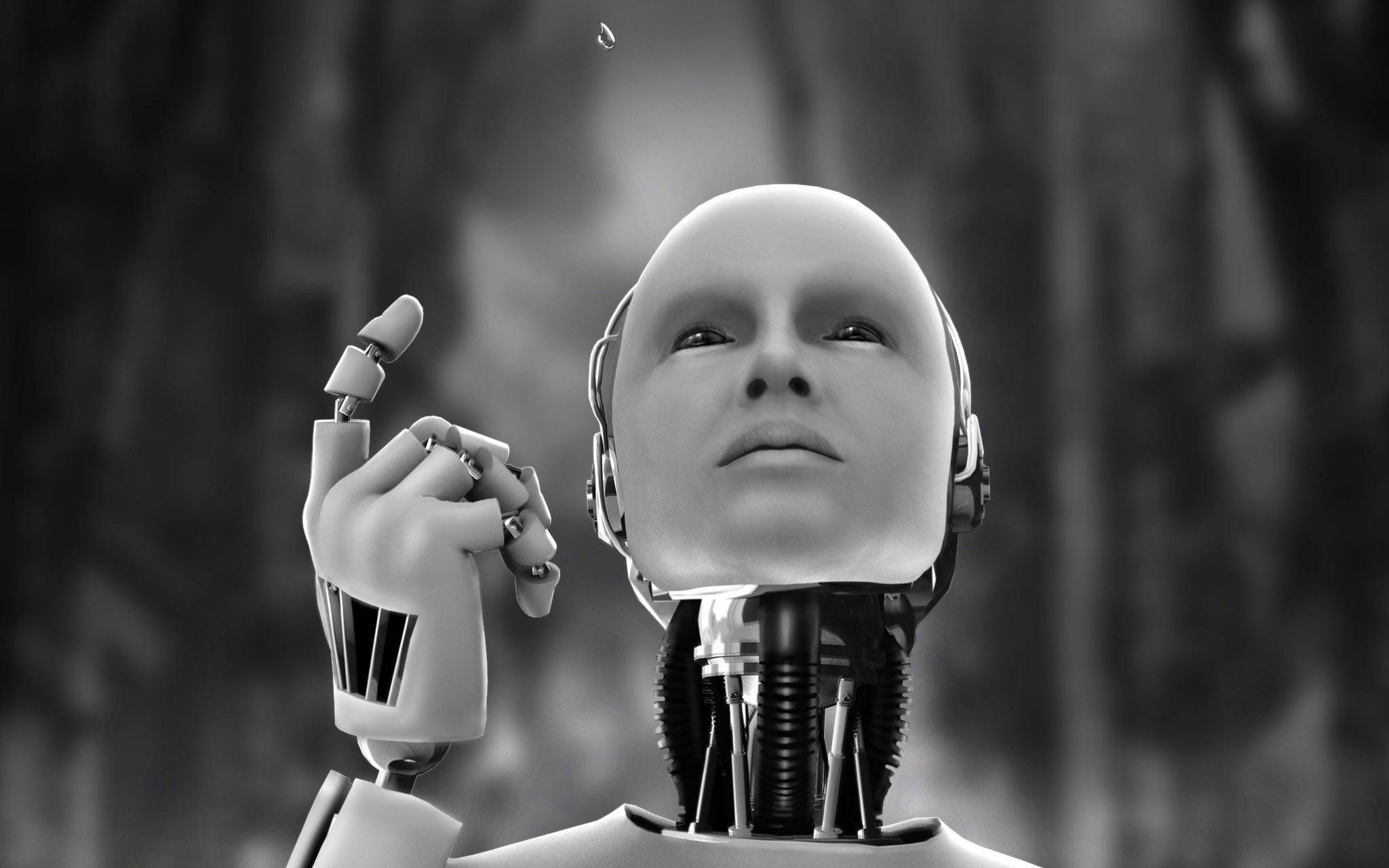


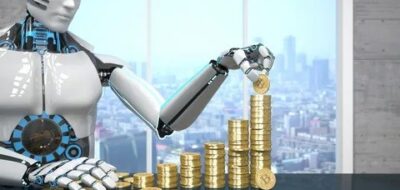
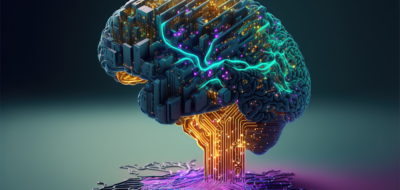
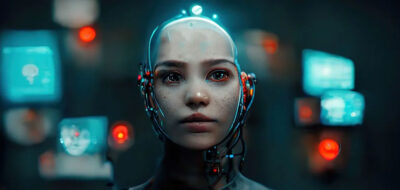
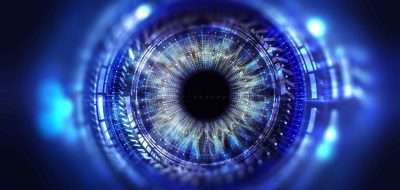


Tom Jonezz
AI has surged massively in the recent (<5) years because computing power reached a threshold where they're able to learn on their own. i.e. Machine Learning.
Machine learning is essentially instead of a programmer telling the computer exactly what to do, we feed the computer a ton of data let it figure out on their own via trial and error (hence the increased computing power required.) This is how Youtube is able to make accurate video suggestions, or how Facebook suggests ads specific to you. This is why all the tech companies wants your data. What do you think you're doing when filling out those "prove that you're not a robot" questionnaires? That's right. Teaching a robot to recognize those images.
This is where China's advantage comes in. Huge population + Lack of privacy laws = Machine learning paradise. Many Chinese companies are already kicking western company's ass when it comes to AI. Only the biggest privacy offenders like Google, Facebook, and Amazon are putting up a fight. You can even see that Apple is falling behind with Siri compared to its competitors.
SimonMcD
It’s funny because if you replace robot with soldier in the question it doesn’t make it simpler. It implies that it’s ok to send soldiers to kill people and not machines.
tom lee
Devil’s Advocate: If a human played with only access to the raw API data, they would probably be even worse.
John Accural
Norbert nice little note here. I’d love to publish it! Add some nice 60 minutes clips of AI and such
Tom Jonezz
Western companies are far ahead in AI. There is no Chinese company that would be even barely close to google in terms of image recognition or voice recognition. Every single day I hear about China being far ahead in AI than anybody else but I can never see any source that would suggest that China has advanced form of modern neural network design noone else has. Because they do not.
If you opened the article then you would know that China is not threat because they would be ahead in technology. They are threat because of how they use technology in their surveillance state control and there are serious concerns that such practice could spread to our countries.
Norbert Biedrzycki
In 2019, AI will expand to cover new dimensions such as media, healthcare, retail, manufacturing, communication, research – in fact, almost every area of modern life has the potential to be influenced by AI applications.
Mac McFisher
If men invent an artificial person which is doing better job then a woman what do you have to do? What do you mean improve yourself??!? You misogynist! What a woman must do is ban it in order to keep her monopoly on that piece of action and billions of men unhappy and miserable because she will not provide what you can get somewhere else and there you have it gentlemen…. i present to you the ‘caring’ more ‘loving’ gender! Aren’t they the best??!?
John Accural
Norbert nice little note here. I’d love to publish it! Add some nice 60 minutes clips of military ai and such
SimonMcD
Fully agree,
Humanity is rapidly changing, doing things (business) the classical way will not go far. Businesses need to change as well along with the new habits, new needs and challenges. This is quite easy, but hard to see while going.
Thank for sharing Norbert Biedrzycki
TomK
Hi Norbert, How much space do I have to respond? We should be extremely concerned and I am going to write short concerns and then several links and two by Paul Michelman from Editor In Chief, MIT SLoan Management Review. Paul is on the network and you may want to reach out to him. Concerns: No Global Governance, No International Laws, Tech Companies trying to influence policy makers, Policy makers may be unclear or unfamiliar with complexity of problem to write policy, AI Mind Labs harvesting data off of sites from people that are unfamiliar they are being studied, Technologists changing human biology and we are giving coders a key to humanity, Cyborg technology is now live with the interface with the brain, Cyber attacks brought upon society like a Perfect Storm with AI technology, Under reporting of cyber attacks due to lack of controls and ransom is paid by companies. There is more… Have a great weekend.
Adam Spikey
What’s better than the money saved is that we can save people from a boring and mechanical part of their jobs
PiotrPawlow
Right thesis but IMHO the likely outcome is a bit more nuanced. There’s widespread belief around the world that robots will take the jobs of humans. But a new report estimates that robots in the workplace could create nearly double the jobs they destroy.
Norbert Biedrzycki
This reminds me of a fantastic publication by BoozAllen called the Field Guide to Data Science: https://www.boozallen.com/s/insight/publication/field-guide-to-data-science.html
Tom Jonezz
If AI depends on having a data set to learn from than chances are the interesting things Chinese AI can do will only work in China. The Chinese government trains an AI on their intranet to figure out how to push public opinion around, but it flops on the English internet because the average Chinese netizen thinks differently from your average redditor.
Tom Jonezz
The idea of cyborgs running around is the stuff of science fiction films from the 1980s, but it is going to become a reality sooner than most people think. Transhumanists are a remarkably diverse group, with DIY “biohackers” and the US Department of Defense being two of the most prominent examples.
Norbert Biedrzycki
Actual artificial intelligence. People don’t really grasp how dangerous it really is. Ever play a game against someone using an aimbot and notice how they aren’t 10 or 50 or even 100% better than the best players in the lobby, they are winning by a factor of 10?
Guang Go Jin Huan
silicon valley is miles ahead in AI tech compared to russia and china. putin is making those statements to weaken the US position in the field (“look at america, theire building dangerous stuff”)
Tom299
People who are optimistic that artificial intelligence and machine learning won’t put us all out of a job say that human ingenuity and creativity will be difficult to imitate. The classic argument is that, just as machines freed us from repetitive manual tasks, machine learning will free us from repetitive intellectual tasks.
Karel Doomm2
Norbert. We are not in a position to determine what is a human in the future. I think it is fascinating that we can press the boundaries of what science will allow scientists to build. without any regard what this means to humanity and the real life consequences. The danger of this recipe at hand is the following: 1) scientists/technologists have been given free reign on defining the future of humanity; 2) companies that do not want to be regulated writing papers to influence politicians that are unaware of steering policy. I think if you put some of these scientists/technologists/politicians in a room with Mohammed, Jesus, Moses, Buddha, and other religious leaders they may leave the room thinking differently. These companies can stand outside of their corporate facilities smiling and showing what great things they are doing for humanity well we should have a governance committee backed by international laws determine if that is the case.
Two videos that are helpful as we think about advocating for governance and law:
Ronald Dworkin -Law: https://lnkd.in/eSn4_c3
Murray Gell-Mann- Science/Tehnology: https://lnkd.in/ezfT_ZD
TonyHor
It is very often about how the questions are asked. I see a significant dichotomy in this article. The way we use AI, machine learning, bots etc and how it improves, speeds up our effectiveness is evolving, people accept that -that’s great. But no one really explained what does it mean a Robot Boss… so it is more an answer to the question – are you afraid of more and more robotics, AI, etc as a part of your processes in corporate job. That is not the same.
At the same time there is something very frightening how people “conciously” put themselves and “as brick in the wall” not the creators… it is like choosing the race they can not win … 🙁 I would listen to Jack Ma more 😉
https://www.youtube.com/watch?v=pQCF3PtAaSg
TommyG
It use to take a few hundred people to do all the paperwork, then the consolidated Many jobs with others, THEN a few machines were added, and Pencils almost lost out, but you Dumped 1/2 the jobs. Then More machines and better machines…and MORE jobs lost..then computers that did all those machine jobs…and MORE..and now 1 person can do the same work it took 20 people to do.
NOW add this..Corps hire 1 person that knows WHAT/HOW to do everything, and then the rest are all Min wage slaves.. Which means those educated knowitalls, DONT get the jobs..no matter how much education you got.
Check Batin
Great article. Thank you for sharing
Norbert Biedrzycki
🙂
TonyHor
Thank you for this threat. Very nicely structured
TommyG
Great article
Tesla29
A nice way of thinking with a deep sense of humor! But if to make a mental jump and shortcut in R&D, the conclusion may be that AI will be an American or a Chinese. And if to follow this thought, then at first of AI will be a teenager. Whether there is a country in which the teenagers are subordinated to their parents? -:)
Thank you for sharing.
Guang Go Jin Huan
Here’s a little reality check for you…
https://en.wikipedia.org/wiki/ACM_International_Collegiate_Programming_Contest
12 wins for Russia… 6 consecutive wins since 2012 to 2017. The last time US won was in 1997. Let that sink in. Silicon Valley is thriving because of global talent. Russian government can easily recruit their top programmers and computer scientists by throwing money at them.
And99rew
I hope that thanks to automation people will have more time to spend interacting with AI which will bring potentially infinitely more opportunities for learning and being even more productive. 😀
AndrewJo
Nice read. Quite comprehensive
johnbuzz3
Brain-to-brain connection? Looks like sci-fi to me
Norbert Biedrzycki
Why not? Next gen of human beings?
PiotrPawlow
As a general trend, mesh networks represent a global process of people connecting with devices and services – their role is to support a range of interface processes between man and machine. These may be a thinking process, services, aids for improved perception, stimuli enhancement or access to technologies. Once a connection develops, it naturally fosters an evolution in user experience. This, in turn, fuels a further evolution and the emergence of ever-more sophisticated support technologies: conversation systems and expanded technology platforms.
Zidan78
Today we have people that recover from deep depresion thanks to stimulating certain nerves (vagus nerve). Patients live with the implanted device that simple makes them happier 🙂
There are also many other human-machine collaboration based on BCI. Have a look at: https://www.linkedin.com/pulse/human-machine-collaboration-which-you-probably-didnt-know-wawi%C3%B3rko/
Norbert Biedrzycki
Interesting example. Thank you
TomCat
Hi Norbert, I believe being faced with AI and a machine that is supposed to mirror humanity has been a wake up call. We understand the machine will learn from us and that scares many people. I call it the moral/ethical awakening. People are good (except for a few bad apples), however I think some have lost their way. The technology of AI has forced that mirror to be held up in front of many and some do not like what they see (internally). Have a nice day. Tom
Norbert Biedrzycki
Thank you. I want to believe we are good in nature and capable of moral decision
AndrewJo
No sure so
Tom Jonezz
Another cool read Mr N
AndrewJo
Good one. Indeed
Check Batin
AI may narrow down decisions for the leaders, the final say should always be made by a human (or humans) after due consideration. Applying AI’s recommendations without doing so is both risky and irresponsible. As a leader you can’t rely on AI alone when making corporate wide strategic decisions. What about people?
Tesla29
True AI is very simple and still does not exists. It is “self-learning algorithm”, as simple as that. All these so called AIs are just big data applications… Once true AI will be found, singularity comes very soon… 😉
John Accural
AI is a significant enabler, but it’s also very demanding for people. If you’re a leader who spends most of your day running processes and consolidating information, a lot of your time is spent just talking about whether the information is correct. If AI plays that role, some people will be able to do what they really want to do – which is make decisions, ask questions, be more creative – but there will be others thinking they haven’t done that for years so it can be quite daunting.
SimonMcD
Leaders of the digital age need to try and tap into the full potential of the people who work for them, which means they have to have a greater understanding of what their people can do, empower them more, and also ask more questions. Leaders in the digital age are much better at asking questions, and showing some vulnerability in what they don’t know.
AdaZombie
AI can be a huge help to the leader who’s trying to become more inwardly agile and foster creative approaches to transformation. When a CEO puts AI to work on the toughest and most complex strategic challenges, he or she must rely on the same set of practices that build personal inner agility. Sending AI out into the mass of complexity, without knowing in advance what it will come back with.
CaffD
I would not trust AI so much
Tom299
Many discussions about AI imagine a fully autonomous superintelligence that designs itself with little to no human intervention, making decisions in ways that humans cannot possibly understand. Yet the work of designing, developing, engineering, training, and testing such systems requires a massive amount of human labor, which is typically erased when such systems are released as products.
Tom299
Great article. Was a pleasure to read